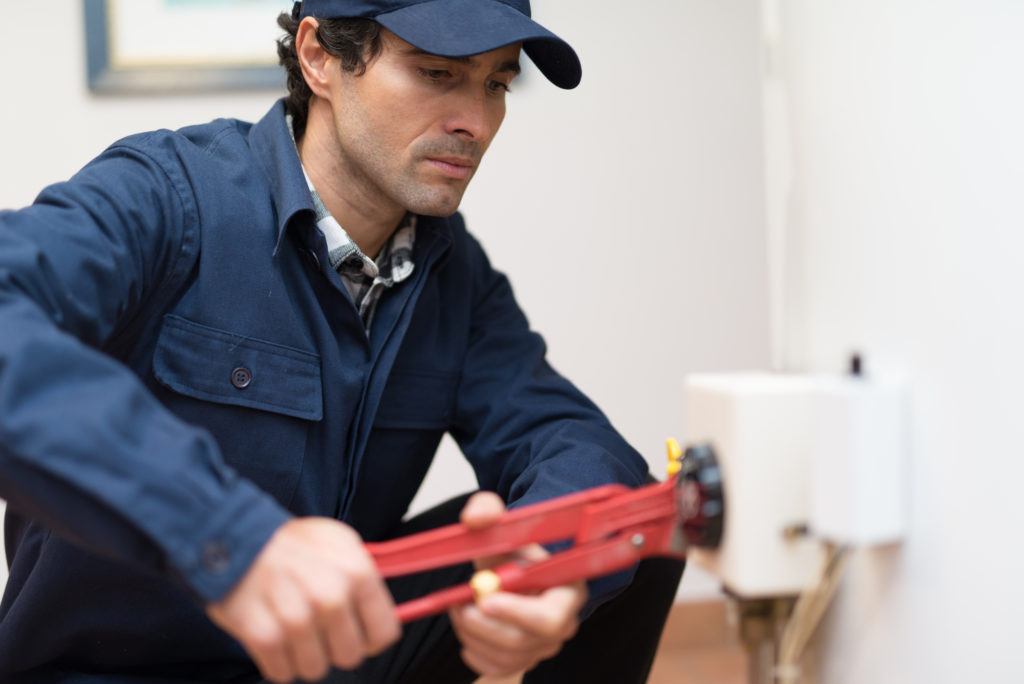Common Water Heater Complications
Common Water Heater Complications
Blog Article
What're your beliefs on Common Problems with Your Home Water Heater?

Think of beginning your day without your routine warm shower. That currently establishes a bad tone for the rest of your day.
Every house requires a reputable water heater, however just a couple of understand exactly how to handle one. One simple method to maintain your hot water heater in top shape is to look for mistakes frequently as well as fix them as quickly as they appear.
Bear in mind to shut off your water heater before smelling around for faults. These are the water heater mistakes you are probably to run into.
Water too warm or as well chilly
Every hot water heater has a thermostat that establishes how hot the water gets. If the water coming into your house is as well warm regardless of establishing a practical maximum temperature level, your thermostat may be damaged.
On the other hand, too cold water might be due to a failed thermostat, a damaged circuit, or improper gas flow. For example, if you utilize a gas hot water heater with a broken pilot light, you would obtain cold water, even if the thermostat remains in perfect problem. For electrical heating units, a blown fuse may be the wrongdoer.
Insufficient warm water
Hot water heater come in several dimensions, depending on your warm water needs. If you lack warm water before every person has actually had a bath, your water heater is as well small for your family size. You should consider installing a larger hot water heater container or opting for a tankless hot water heater, which occupies less room and is a lot more durable.
Unusual sounds
There go to least 5 type of sounds you can hear from a hot water heater, however one of the most typical analysis is that it's time for the water heater to retire.
First of all, you must be familiar with the normal appears a water heater makes. An electric heating unit may sound different from a gas-powered one.
Standing out or banging sounds usually indicate there is a slab of debris in your tanks, and it's time to cleanse it out. On the other hand, whistling or hissing noises might simply be your valves allowing some stress off.
Water leakages
Leaks could come from pipes, water connections, shutoffs, or in the worst-case scenario, the tank itself. In time, water will certainly corrode the container, and discover its escape. If this occurs, you require to change your hot water heater immediately.
Nonetheless, before your modification your entire container, make certain that all pipes remain in place which each valve works completely. If you still require help recognizing a leakage, call your plumber.
Rust-colored water
Rust-colored water suggests one of your hot water heater parts is rusted. It could be the anode pole, or the tank itself. Your plumber will certainly be able to determine which it is.
Warm water
Regardless of exactly how high you established the thermostat, you will not obtain any kind of warm water out of a heating unit well past its prime. A water heater's efficiency might decrease with time.
You will additionally get lukewarm water if your pipelines have a cross link. This means that when you turn on a tap, hot water from the heating system streams in alongside regular, cold water. A cross link is simple to spot. If your hot water faucets still run after shutting the hot water heater valves, you have a cross connection.
Discoloured Water
Corrosion is a significant cause of unclean or discoloured water. Deterioration within the water container or a stopping working anode rod could cause this discolouration. The anode rod secures the container from rusting on the within and ought to be inspected annual. Without a rod or a correctly functioning anode pole, the hot water quickly wears away inside the container. Call a specialist hot water heater professional to establish if changing the anode rod will fix the issue; otherwise, replace your hot water heater.
Conclusion
Ideally, your hot water heater can last one decade before you need a change. Nevertheless, after the 10-year mark, you may experience any of these mistakes more regularly. At this point, you should add a brand-new water heater to your budget plan.
How To Troubleshoot 3 Common Water Heater Problems in Twin Cities
The Water Heater Is Leaking
A leaky cold water inlet valve A loose pipe fitting A leaky temperature and pressure relief valve A corroded anode rod A cracked tank Turn Off Your Water Heater:
Shut off your gas water heater by turning the gas valve on the unit to the “OFF” position. Shut off your electric water by switching its power off at your electrical panel. Look for a two-pole breaker labeled “water heater” and turn it to the “OFF” position. Move the ball valve connected to the water heater to be perpendicular to the piping at a 90° angle. Look for the Leak:
Depending on whether the water is coming from the tank's top or bottom, you’ll want to look for the leak in different locations.
If the leak comes from the top of the tank, carefully look for water escaping from the cold water inlet valve or loose pipe fittings. Rusted hot and cold water valves can have loose connections with the tank, with water leaking out of them.
https://mspplumbingheatingair.com/blog/how-to-troubleshoot-3-common-water-heater-problems
We were shown that report about Water Heaters Problems through an associate on a different web address. Enjoyed our write up? Please share it. Let other people check it out. We treasure reading our article about Common Problems with Tank Water Heaters.
Need urgent help? Reach. Report this page